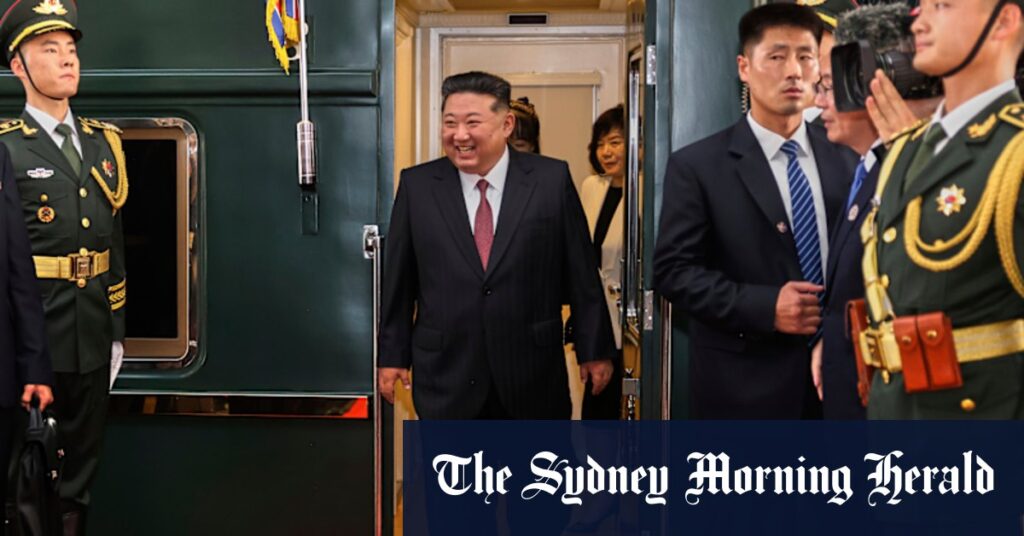
US President Donald Trump launched a verbal attack on Chinese President Xi Jinping on Wednesday, accusing him of conspiring with Russian President Vladimir Putin and North Korean leader Kim Jong-un against the United States. This accusation came as Xi hosted a major military parade in Beijing, attended by foreign leaders, including Putin and Kim.
In a post on TruthSocial, Trump adopted a sarcastic tone, stating, “May President Xi and the wonderful people of China have a great and lasting day of celebration. Please give my warmest regards to Vladimir Putin, and Kim Jong-un, as you conspire against The United States of America.” The message was timed with the commencement of the parade, which marked 80 years since Japan’s defeat in World War II.
Backdrop of the Accusation
The military parade in Beijing, a grand affair meant to showcase China’s military prowess, was notably absent of Western leaders. The event, however, featured Putin and Kim as guests of honor, both of whom have been largely isolated by the West due to ongoing geopolitical tensions. Putin’s involvement in the Ukraine conflict and Kim’s persistent nuclear ambitions have made them pariahs in Western political circles.
Trump’s remarks highlight the growing concern among US policymakers about the strengthening ties between China, Russia, and North Korea. This trilateral relationship is perceived as a strategic alliance that could challenge US influence in global affairs.
Historical Context and Expert Opinions
The alliance between China, Russia, and North Korea is not a new development but has historical roots. During the Cold War, these nations were united under a shared ideology, although relations were often strained. Today, their collaboration is seen more as a pragmatic partnership rather than an ideological one.
According to Dr. Emily Chen, a political analyst specializing in East Asian geopolitics, “The current dynamics between China, Russia, and North Korea are driven by mutual interests rather than ideological alignment. They share a common goal of counterbalancing US influence in their respective regions.”
“The current dynamics between China, Russia, and North Korea are driven by mutual interests rather than ideological alignment.” — Dr. Emily Chen, Political Analyst
Experts suggest that while the US remains a dominant global power, the increasing cooperation between these nations could pose significant challenges to American foreign policy, particularly in Asia and Eastern Europe.
Implications for Global Politics
The growing camaraderie between Xi, Putin, and Kim could have far-reaching implications for international relations. Their collective stance against Western policies, especially those led by the US, might embolden other countries to reconsider their diplomatic alignments.
Meanwhile, the Biden administration has been closely monitoring these developments. In response to the parade, a State Department spokesperson emphasized the importance of maintaining strong alliances with democratic nations to counterbalance the influence of authoritarian regimes.
The move represents a strategic pivot in global politics, where alliances are increasingly defined by geopolitical interests rather than traditional ideological lines. As the world watches these developments unfold, the question remains: how will the US and its allies respond to this emerging axis?
As the geopolitical landscape continues to evolve, the next steps for the US could include bolstering alliances in the Asia-Pacific region and reinforcing commitments to NATO allies. The coming months will be crucial in determining how these complex relationships will shape the future of international diplomacy.






